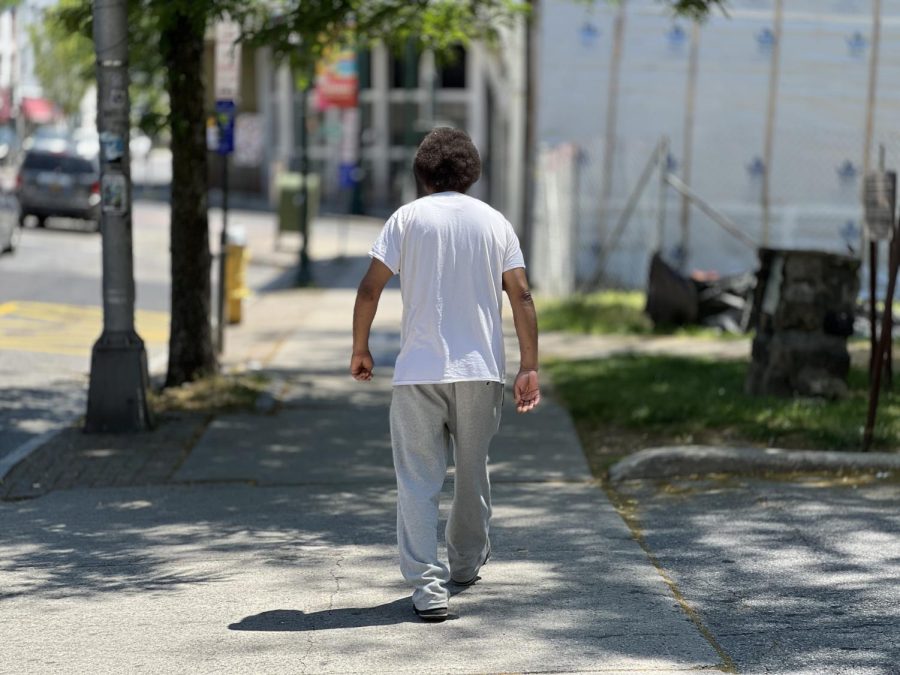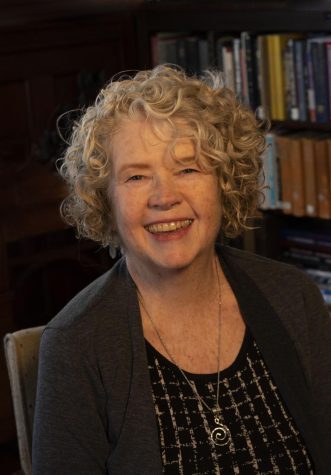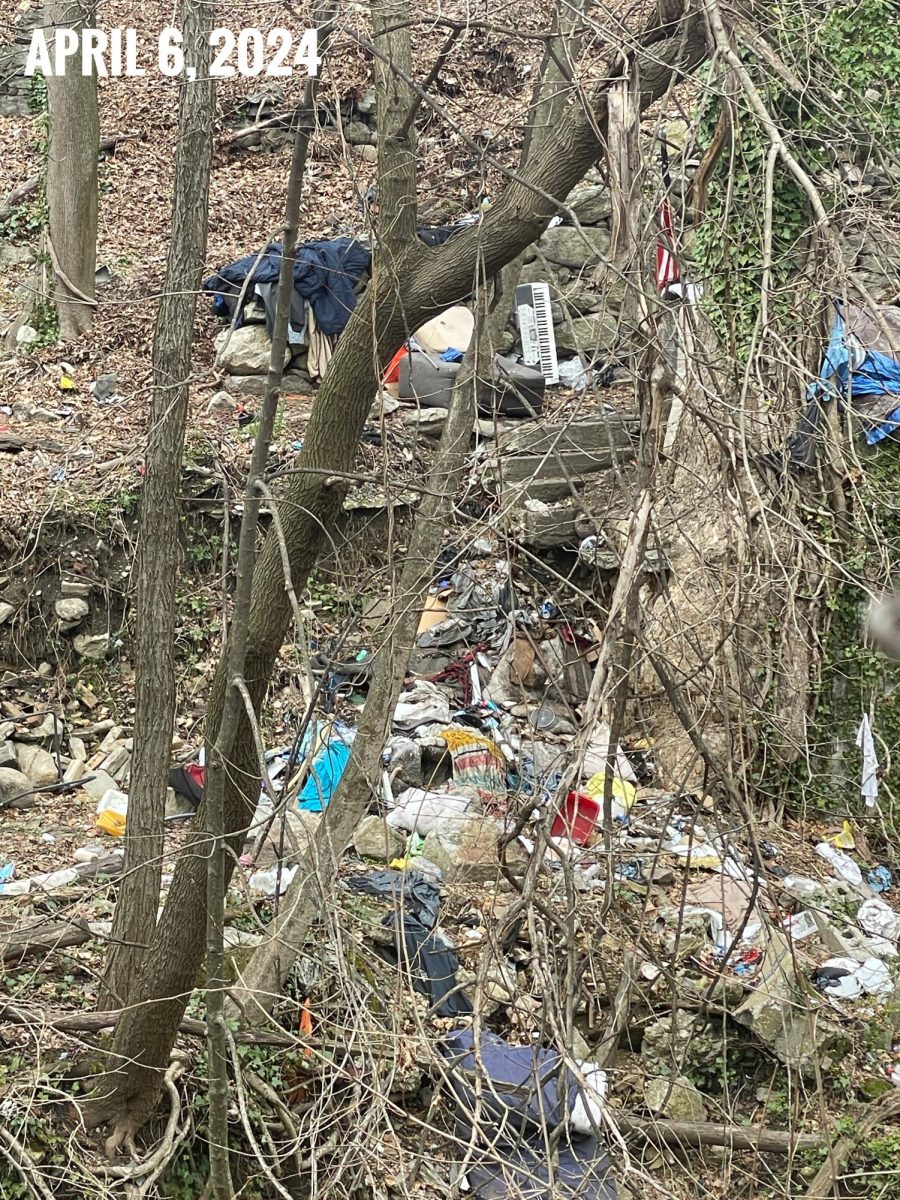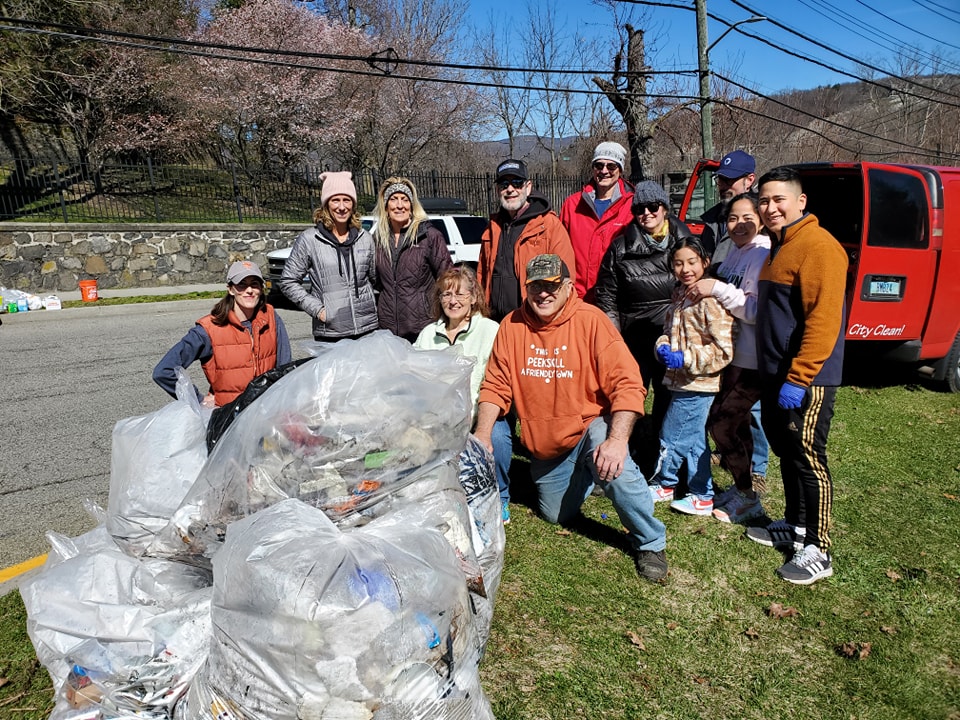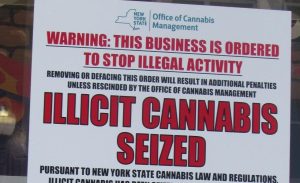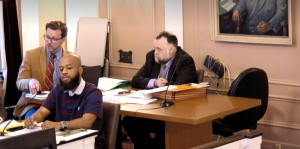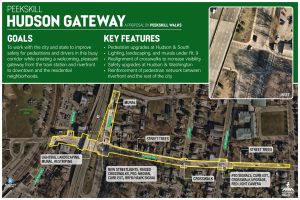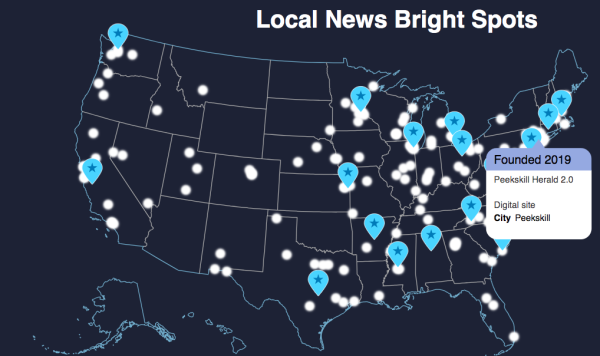Hospital Report: loneliness, lack of housing and jobs contribute to poor health
May 31, 2023
It’s a distinction Peekskill would rather not qualify for. The city is a “high priority” neighborhood in relation to economic conditions and environmental factors that affect people’s lives and their health, according to a Community Health Needs Assessment conducted by New York-Presbyterian for its 10-campus hospital system.
As a result of that determination, nonprofits in Peekskill are encouraged to submit a letter of intent to apply for a grant from the Community Fund of New York-Presbyterian by June 2. The Fund expects to distribute initial grants of $80,000 to $150,000 annually for up to two years, with a maximum award of $300,000.
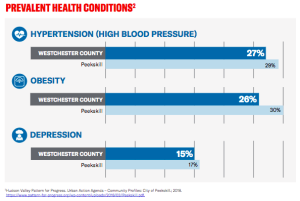
The goals of the Community Fund are to build relationships and provide necessary resources to community based organizations to address specific social determinants of health. This grant program represents an opportunity for NewYork-Presbyterian to provide support for innovative, creative, and critical responses to communities. The broader objectives are to improve health and well-being, and reduce health disparities in communities served by NewYork-Presbyterian. Peekskill and Mt. Vernon are the two Westchester communities the grant seeks to support by aiming to change the underlying conditions shaping health inequities.
During 2022, New York-Presbyterian undertook an information gathering process involving the review of publicly available data on 70 health indicators. Sources included the Westchester County Department of Health, the Westchester Index, the CDC, NYS Department of Health, NYS Prevention Agenda Dashboard, U.S. Census, and USDA Food Research Atlas, among others and literature review of relevant health topics.
An integral component of the year-long process were extensive interviews through focus groups and key stakeholder sessions to engage community members for feedback. For example, in the Hudson Valley, 90 community member surveys were conducted in English and Spanish. Five focus groups were convened to identify health challenges and priorities among various communities. There were five key stakeholder interviews to gain insight from community leaders on local health needs and resources.
NYP also convened a “Think Tank” to obtain feedback directly from clinical and community hospital staff and providers.
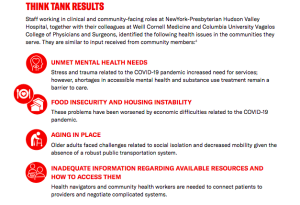
The report found that health outcomes vary, with notable differences by race and ethnicity for indicators such as premature death and adverse birth outcomes. In Peekskill, residents experience wide disparities in average age of death: 81 years for white residents, 75 years for Latino/a residents, and 70 years for Black residents.
As a result of the interviews and data collection, three key areas were identified as the focus of funding: social isolation, housing insecurity, and unemployment and economic recovery. All grant applicants need to address one of those three areas.
The report states that “social isolation during the pandemic contributed to increased mental health challenges for New Yorkers of various demographics. Despite an increased need, resources to address social isolation were limited. Community support groups were suspended during the pandemic and other social support outlets, such as virtual meetings, were inaccessible to some community members due to limited digital access. For adolescents, forced social isolation was a negative factor in their overall wellbeing and mental health.
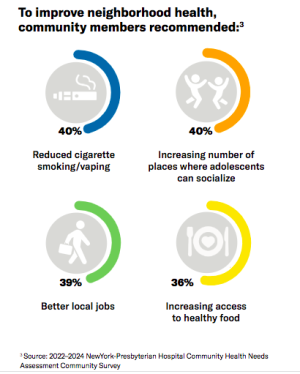
The report continued, “Opportunities to build connection, at any age, are essential to individual health and well-being. Addressing social isolation is also essential to creating healthy communities.”
“Many community residents struggle with the high costs of their homes, live in poorly maintained housing, or experience homelessness. The problem is pervasive in Westchester County, where 50 percent of renters are “rent burdened,” meaning they spent more than 30 percent of their income on rent.” Housing insecurity was consistently mentioned by community members in focus groups as a challenge faced due to economic hardship. Housing insecurity can contribute to health challenges; high housing costs are directly linked to poorer health for low-income populations because of the behaviors and living circumstances they necessitate. Housing insecurity has worsened as both rent costs and eviction rates have increased” the report observed.
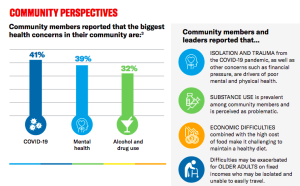
The final area of focus is economic and financial well-being. The report found that fiscal security “substantially impacts access to the resources needed to live a healthy life. The pandemic profoundly affected the economy, with record job losses and small business closures in Westchester County. Those with the fewest financial resources available to them were disproportionately impacted by the economic effects caused by the pandemic. Zero or reduced income has been connected to several health-related issues, such as chronic health conditions (e.g., diabetes, heart disease), infectious diseases (e.g., HIV, hepatitis C), maternal and infant morbidity and mortality, and poor mental health. These health outcomes are due to insufficient access to resources that promote well-being, such as healthy food, quality housing, limited access to quality healthcare, and higher levels of chronic stress caused by economic instability.”
Community residents who participated in focus groups linked documented increases in illicit drug use and community violence to economic challenges caused by the pandemic. While the local economy is slowly improving to pre-pandemic levels, the recovery has been uneven. Some neighborhoods still have a disproportionate number of vacant storefronts, affecting economic development and job opportunities. Many workers, particularly low-wage workers and people of color, continue to face higher unemployment rates, pointing to structural inequities in the economic recovery.



